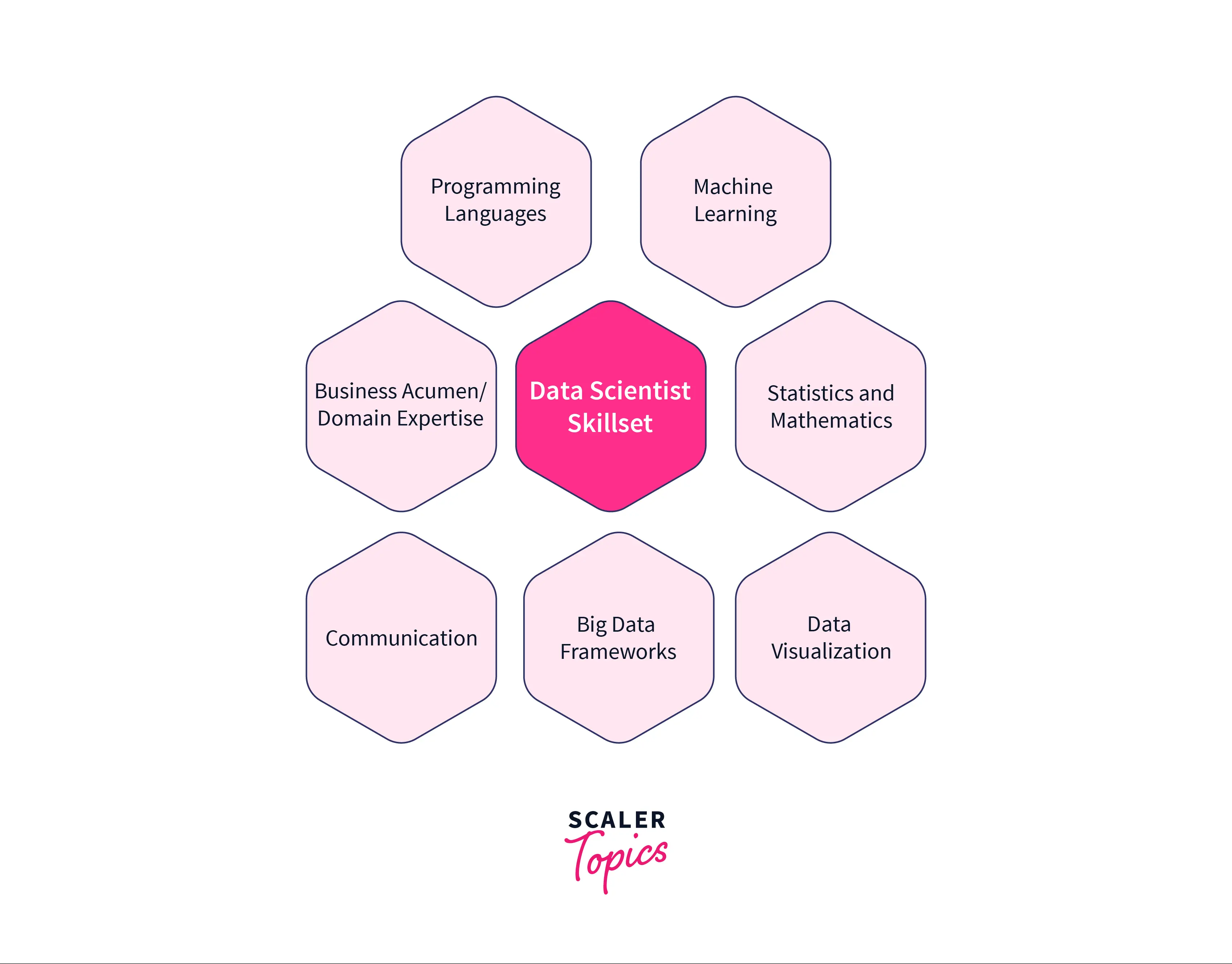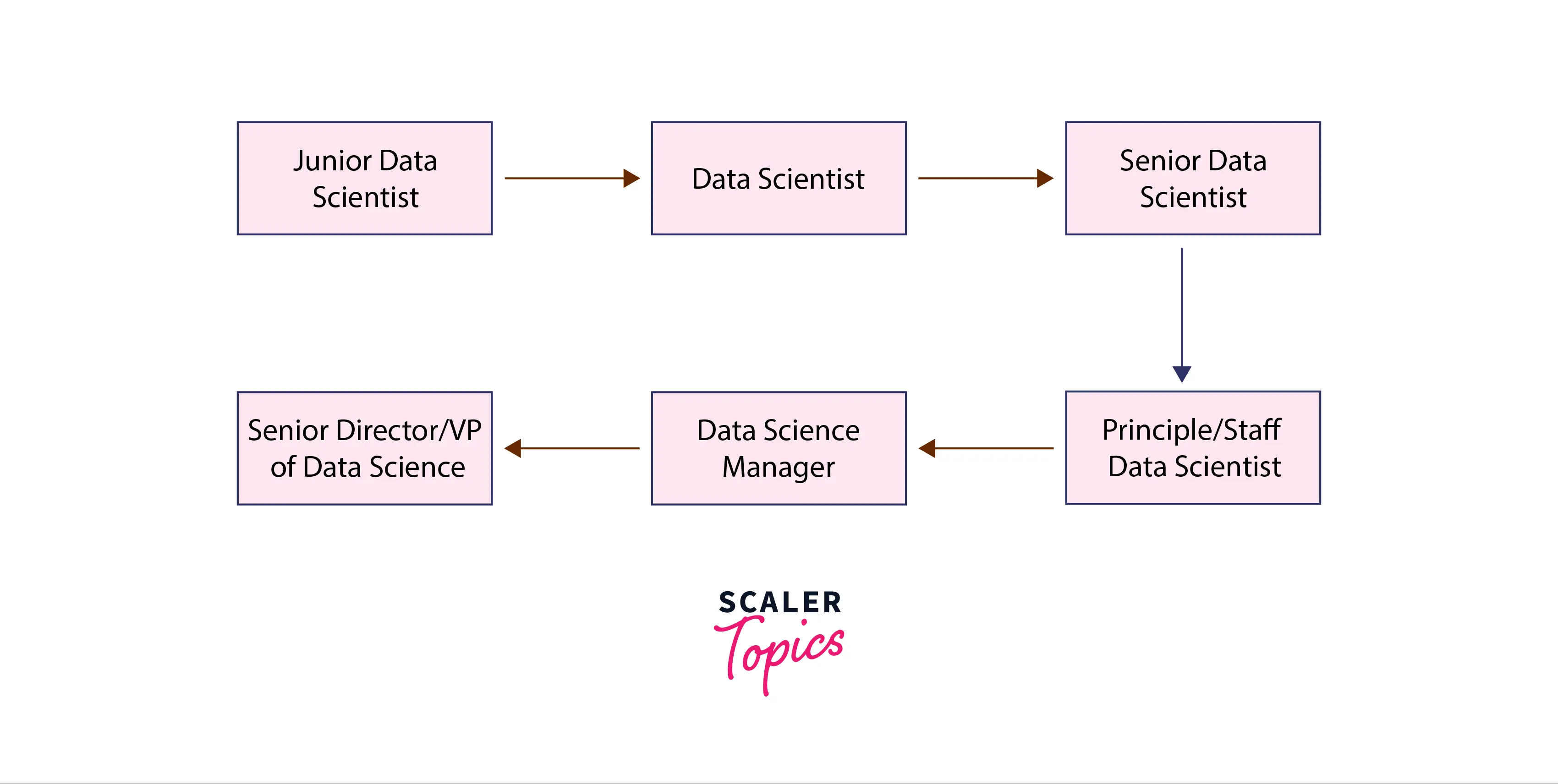What does a Data Scientist do?

Introduction
The goal is to turn data into information and information into insight. - Carly Florina, Ex-CEO of HP
Nearly a decade ago, it was difficult for organizations to store and process large amounts of data due to the cost and complexities involved. But things changed when Big Data processing frameworks such as Hadoop arrived. Now organizations are dealing with petabytes and exabytes of data, and they have shifted their focus on hiring data professionals who can dig into this overwhelming amount of data and derive information and valuable insights that can help businesses boost revenues. This is what Data Scientist does, and that’s why they are highly paid and sought after.
Data Scientists are the practitioners of the Data Science discipline who are responsible for processing large amounts of data residing in the organization’s repositories by applying various scientific methods. It has already been regarded as the sexiest job of the 21st century by Harvard Business Review.
So in this article, we will discuss What does a Data Scientist do, what are their roles and responsibilities, and their career path ?
Data Scientist Job Description
Data Science is the science of analyzing raw data using statistics and machine learning techniques to derive valuable insights. Data Scientists are professionals who are responsible for implementing data science techniques for an organization to generate valuable insights that can help them boost revenues. They collect, process, and analyze large amounts of structured and unstructured data from a business point of view and apply various methods such as statistics, machine learning, etc. to create insights for organizations.
They bring together concepts of software engineering, statistics, and the business world to process data to answer various questions.
Data Scientist was a completely unknown term just a decade ago, but as businesses have understood the importance of big data, they have become more and more common, and their demand is growing continuously. To understand what a Data Scientist’s typical day looks like or What does a Data Scientist do, let’s get into Data Scientist’s role and responsibilities.
Data Scientist Roles and Responsibilities
Working as a Data Scientist can be intellectually challenging, analytically satisfying, and put you at the forefront of new technological advances.
Below are typical data scientist roles and responsibilities
- Understanding Business Requirements:
- Data Scientists must have strong business acumen/domain expertise, collaboration, and communication skills to understand an organization’s business problems by working closely with multiple stakeholders.
- Data Collection :
- Once the business problem is understood and framed into a Data Science problem, the next step for Data Scientists is to identify relevant data stored in organizations’ repositories.
- Data Scientists collect large amounts of structured or unstructured data stored in a variety of data sources using programming languages such as SQL, Web Scraping, APIs, etc.
- Data Preparation:
- After collecting the data from different sources, Data Scientists clean and prepare this data by discarding irrelevant information, imputing missing values, handling outliers, and employing sophisticated statistical or analytical methods.
- Exploratory Data Analysis (EDA):
- This is a key step in the implementation of any Data Science solution. It helps Data Scientists identify underlying trends and patterns in the data.
- Data Scientists perform Exploratory Data Analysis (EDA) on the data by applying various statistical (correlation, mean, mode, etc.) or visualization methods (scatter plots, histograms, bar charts, etc.) using programming languages such as Python, R, etc.
- Feature Engineering:
- It is the process of identifying the most impactful and relevant features from the raw data by applying business domain knowledge. These engineered features can help in boosting the accuracy of the developed ML models.
- ML Model Development :
- It is the most important part of the job of a Data Scientist. Data Scientists develop predictive or prescriptive models by applying various Machine Learning algorithms using programming languages such as Python, R, Scala, etc.
- Communication:
- Once the ML model is developed and insights are derived, Data Scientists need to communicate findings to business stakeholders and recommend changes to existing procedures or strategies to solve given business problems.
- Stay Up to Date:
- Data Science is a fast-evolving field. To stay tuned, Data Scientists must keep track of ongoing research in related fields such as Machine Learning, Deep Learning, Natural Language Processing, other analytical techniques, etc.
Data Scientist Job Requirements and Skills
If you are looking to become a Data Scientist, below are the technical as well as interpersonal skills you will need to be proficient in :
Programming Languages:
- Data Scientists spend a lot of time using programming languages to perform various Data Science tasks such as collecting or preparing data, building and developing machine learning models, Exploratory Data Analysis, Feature Engineering, etc.
- Some of the most popular programming languages data scientists use to perform various methods are - Python, R, SQL, Scala, SAS, etc. Having knowledge of other programming languages such as C++, Java, etc. is a big plus.
Machine Learning:
- Building and developing machine learning-based predictive or prescriptive models are the most important part of the job of a Data Scientist.
- Data scientists must have an in-depth understanding of underlying mathematical concepts of a wide array of Machine Learning algorithms spanning classification, regression, deep learning, etc.
Statistics and Mathematics:
- Statistics and Mathematics are integral parts of most Data Science techniques and solutions. Understanding the fundamentals of various statistical analysis techniques such as correlation, p-value, A/B testing, etc., and mathematical concepts such as Linear Algebra and Calculus is very important for a Data Scientist job.
Data Visualization:
- Visualization is a key part of a Data Scientist’s job to identify underlying patterns in the data by plotting the data using charts and graphs.
- Data Scientists should be familiar with various visualization tools such as Python, or R visualization libraries, Tableau, PowerBI, Excel, etc.
Big Data Frameworks :
- Data Scientists frequently deal with large amounts of data. Data Scientists should have familiarity with various Big Data processing frameworks such as Apache Spark, Hadoop, etc. This will enable them to deal with large amounts of data efficiently and quickly.
Communication:
- As a data scientist, you must communicate your findings and recommendations to non-technical colleagues or business stakeholders. This may include senior management, other departments within your company, or even customers. It is therefore essential to develop strong communication skills to become a Data Scientist.
Business Acumen/Domain Expertise:
- Business acumen can be defined as the ability to translate business problems into data solutions and connect them to business impact. A Data Scientist must acquire business acumen to process the data in such a way that it can help companies grow and become profitable.
- If Data Scientists can’t understand businesses and their problems, then they can’t use data science techniques in the best way for the organizations. Many data scientists focus on learning technical skills but spend little time developing the interpersonal skills needed to become successful. Having business acumen is the kind of skill that can help you stand out from the crowd.
You can check out Scaler Topics' free Data Science course to get started in Data Science.

Data Scientist Salary in India
The salary of a Data Scientist depends on multiple factors such as years of experience, education, skillset, company, and location. Some companies pay higher to Data Scientists having specialized skills such as Computer Vision, Natural Language Processing, etc.
Salary for a Data Scientist in India ranges from ₹ to ₹ with an average annual salary of ₹ .
In India, the average salary of a Data Scientist having years of experience is ₹ while Senior Data Scientists take home a salary of ₹ on average.
Data Scientist Career Path
In the case of the Data Scientist, it was difficult to trace the career path a few years back as the Data Science field wasn’t evolved enough, and many professionals started their careers in this field with years of experience in software engineering or statistics. However, things are different now, and we can find a career path for a Data Scientist job. Let’s briefly look at the various roles you will encounter on a Data Scientist career path.

Junior Data Scientist
- It is an entry-level data science role mostly suitable for fresh graduates or professionals having minimal experience in this sector. In this role, you will be required to perform basic data science tasks such as deriving insights using data collection from various databases, data mining or analysis, building a predictive or prescriptive model using programming languages such as Python or R, etc.
Data Scientist
- This role requires years of prior experience in the Data Science sector. In this role, you will be responsible for advanced data science tasks such as understanding business requirements, identifying relevant data sources, data cleaning and preparation, developing a predictive or prescriptive model using programming languages such as Python or R, etc, and communicating findings and recommendations to the stakeholders.
Senior Data Scientist
- It is a senior role requiring at least years of experience in implementing Data Science solutions. In this role, you will own and drive the entire data science solution lifecycle, so you must be able to understand business problems and translate them into data solutions, work with messy or unstructured data, and derive insights from it by applying a wide variety of Machine Learning or Deep Learning techniques.
- You would also be required to drive and lead various data science initiatives within the organizations. You must be familiar with Big Data Processing frameworks such as Hadoop, Spark, etc. to build and maintain ETL and Machine Learning pipelines.
Principal/Staff Data Scientist
- This role requires at least years of experience in leading various Data Science projects. In this role, you would be responsible for devising and leading data science strategy within the organization. You must have strong business acumen skills that can turn vague business problems into data science solutions or identify unknown business problems by performing open-ended data exploration. You would frequently work with senior business management to understand business pain points and communicate insights and recommendations.
- You may also be required to publish research papers and patents for the organizations. You would also be required to provide mentorship to other data scientists well.
Data Science Manager
- It is a managerial role requiring at least years of prior experience. In this role, you would be tasked to lead a team of Junior or Senior Data Scientists to own and manage the implementation of data science solutions for an organization. You must have a broad knowledge of the Data Science field including Big Data technologies and frameworks such as Hadoop, Spark, etc. You would be required to collaborate with multiple teams to collect their requirements and deliver data science solutions.
Senior Director/VP of Data Science
- It is a leadership role requiring at least years of experience in leading various Data Science projects with strong business impact, preferably in multiple industries.
- In this role, you would lead a team of Principal Data Scientists, Data Engineers, Data Science Managers, and other data science professionals. You would work with senior management and other partner team heads and will be responsible for implementing big data technologies and complex data science solutions based on larger business requirements and integrating them into products and business processes.
FAQ
Q: Who is a Data Scientist?
A: A Data Scientist leverages and analyzes data to answer business questions by understanding underlying patterns in it and applying various data science techniques that help organizations make better decisions.
Q: What makes a good Data Scientist?
A: A good Data Scientist should have a good understanding of the business world along with a strong understanding of technical concepts of a wide array of Data Science techniques. It will help them bridge the gap between business problems and data. Other than this, a good Data Scientist has strong soft skills such as Communication, writing, collaboration, etc. that make them stand out from the crowd.
Q: Who does a Data Scientist work with?
A: Data Scientists work alongside a team of other Data Scientists to analyze large amounts of data to solve a business problem. They also collaborate frequently with other Data Science professionals such as Data Engineers, Data Analysts, Data Architects, etc. They also need to work with other business stakeholders or partner teams to understand their business requirements and communicate their findings or recommendations.
Conclusion
The future of Data Science is quite promising and offers a lucrative and promising career path along with high salaries. The demand for Data Scientists has skyrocketed in recent years. With the ever-growing data, business organizations have started investing more and more in improving their data infrastructure and implementing data science solutions. Due to this, this demand is expected to grow in the next decade as well. The U.S. Bureau of Labor Statistics has estimated a 22 percent growth in data science jobs during . Data Scientist has already been regarded as the sexiest job of the century. And, for three years in a row, it is named the number 1 job in the US by Glassdoor.
The work profile and data scientist salaries are highly attractive in India and worldwide. If you wish to become a Data Scientist, now is the time to upskill yourself by learning and mastering all the skills mentioned in this guide.
If you want to start a career in Data Science, check out Scaler’s Data Science Program.
